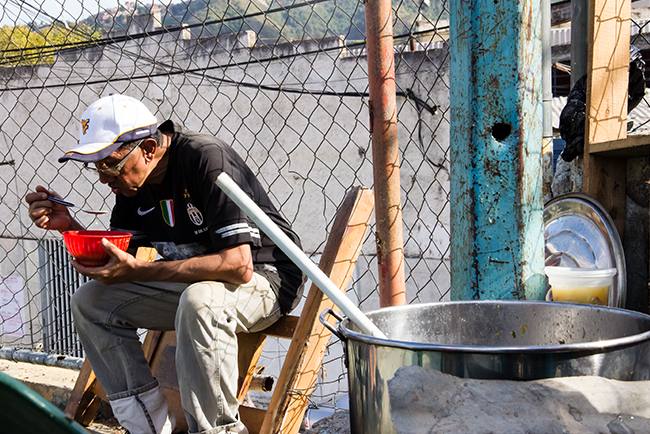Right to Food and Nutrition

The CHE in Venezuela severely violates the right to food, especially for the poorest households. The availability, access, and adequate use of food is impossible for the majority, accelerating the nutritional deterioration of the population, especially children, pregnant women, the elderly, persons with health problems, and persons in prison or in areas of difficult access. The lack of nutrients, calories and protein between conception and two years of age, threatens the growth and development of new generations.
The human right to food is the right of everyone, individually and in community with others, to have physical and economic access in every moment, without discrimination, to adequate food or means for its procurement, in conditions of dignity and cultural acceptability.
This right also includes the right of people to be free from hunger, through policies on food security and nutrition, including responsible governance of land, fisheries and forest tenure.
Within the framework of this right, it is incumbent upon States to establish and maintain social safety nets or other forms of assistance in order to protect those who cannot support themselves.
National Report
94% of the Venezuelan population does not have sufficient income to pay the prices of a basket of food and basic services due to extreme economic deprivation.
With a drop in national production of more than 60% and imports of more than 70%, the Venezuelan population faces a shortage of food.
Eighty percent of Venezuelan households live in food insecurity due to cost, lack of availa-bility and difficulties in food preparation due to lack of water, gas and electricity.
64% of Venezuelans had lost an average of 11 kg of weight between 2016 and 2017, due to the accelerated deterioration of food intake in the required quantity and quality.
Between 2016 and 2018, the undernourished population increased from 5 per cent to 11.5 per cent, and global acute malnutrition reached emergency levels in children and pregnant women in poor parishes.
25,000 pregnant women do not receive prenatal care and 7,500 are monitored late in the eighth and ninth months of pregnancy, putting their lives and those of their children at risk.
Food and health emergencies reduce the chances of children and pregnant women suffe-ring from severe malnutrition to have a chance of survival.
Thirty-three per cent of children aged 0-2 years in poor areas are stunted, exposing them to irreparable developmental disorders and future illness.
Faced with policies of deprivation and dependency, which include denying the emergency and not publishing information, families have adopted survival strategies, including migra-tion.
According to FAO, Venezuela is a high-risk country in terms of food security, due to se-rious political and economic, which can lead to systemic instability.